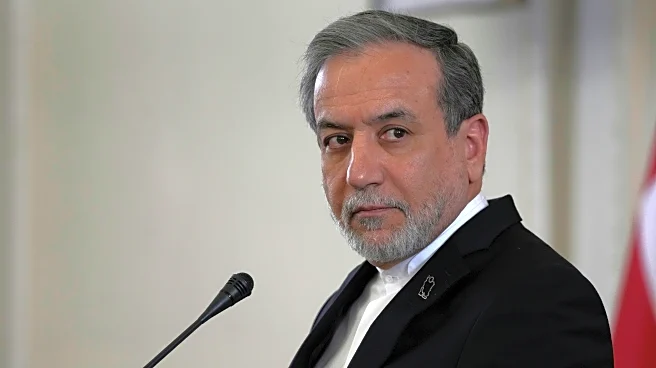What's Happening?
The World Zionist Congress has reached a tentative power-sharing agreement following a breakdown in initial negotiations. The new proposal aims to resolve the impasse between the center-left and center-right
blocs over leadership roles within the World Zionist Organization (WZO) and Keren Kayemeth LeIsrael-Jewish National Fund. The initial plan collapsed after Israeli Culture Minister Miki Zohar announced plans to appoint Yair Netanyahu, son of Prime Minister Benjamin Netanyahu, to a senior position, which was opposed by the center-left bloc. The revised agreement proposes Yaakov Hagoel as WZO chair for the first half of a five-year term, followed by a representative from the Yesh Atid party. Rabbi Doron Perez, initially slated for the WZO chair, will take another senior role within the National Institutions. The agreement seeks to prevent Yair Netanyahu and the far-right Otzma Yehudit party from obtaining positions within the WZO.
Why It's Important?
This development is significant as it reflects the ongoing political dynamics within Israeli politics and the influence of the World Zionist Congress on global Jewish affairs. The power-sharing agreement is crucial for maintaining balance between the center-left and center-right factions, ensuring that neither side gains disproportionate control over the National Institutions. The exclusion of Yair Netanyahu from a senior role is a strategic move to prevent further polarization and maintain stability within the congress. The outcome of these negotiations could impact the allocation of resources and leadership within key Jewish organizations, affecting their operations both in Israel and internationally.
What's Next?
The tentative agreement requires full approval from the involved parties, with voting extended to allow center-right delegates to participate. The resolution aims to prevent Yair Netanyahu from securing a senior position, which could influence future negotiations and the relationship between the National Institutions and the Prime Minister's Office. The congress has extended its session by two weeks to finalize the leadership appointments, with ongoing discussions expected to continue. The outcome will determine the leadership structure and operational focus of the WZO and related organizations for the next five years.
Beyond the Headlines
The leadership dispute within the World Zionist Congress highlights the complex interplay of political affiliations and personal relationships in Israeli politics. The schism within the Likud party, driven by competition between different factions, underscores the challenges of coalition governance. The resolution of this dispute may set a precedent for future negotiations within the congress, influencing how power is shared among diverse political and ideological groups. The decision to exclude far-right elements from leadership roles reflects broader concerns about maintaining moderate governance and preventing extremist influence in key Jewish institutions.










